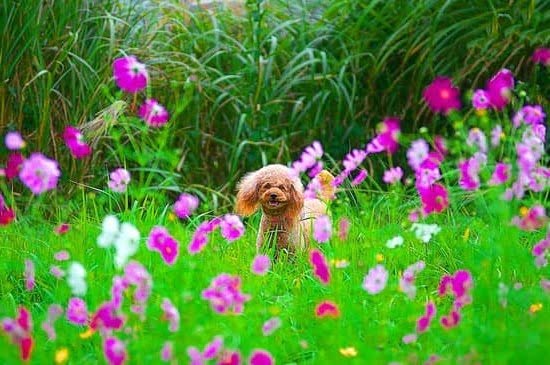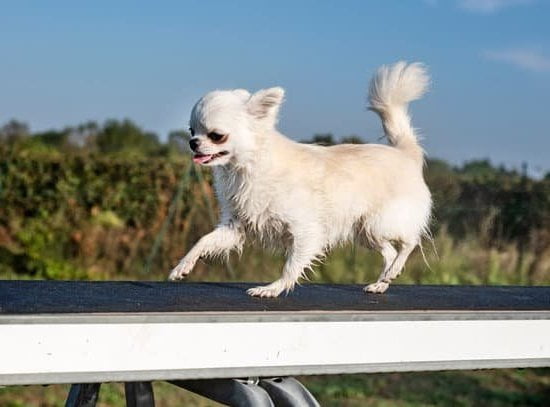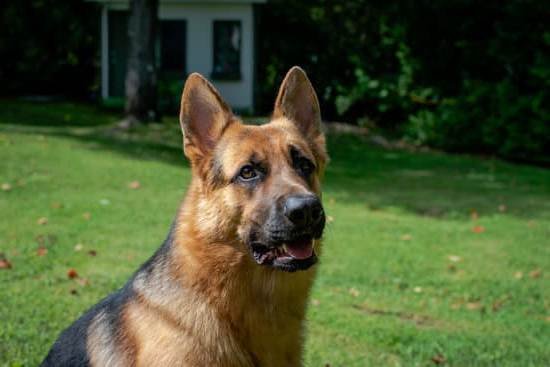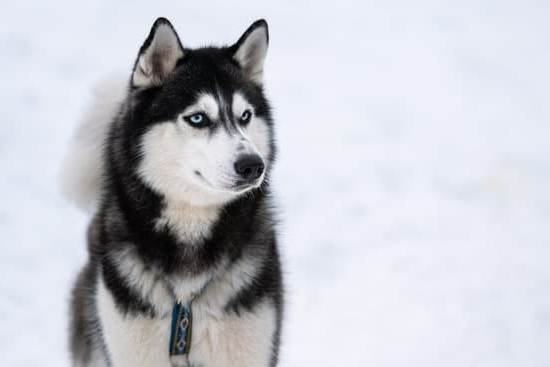Introduction
Potty training an older dog can be a daunting task, as they may have already picked up certain habits that were not trained in their younger years. The good news is that it’s possible to potty train older dogs, and they can learn new habits just as easily as any puppy would.
When it comes to potty training an older dog, consistency is key. You must create a routine for your pup and ensure that the rules are followed consistently, especially at first. Set boundaries for where your dog can go to the bathroom and make sure you reward them for following them correctly. It will take a bit of time to teach your pooch where they should and should not relieve themselves, but remain patient during this process. Consider using positive reinforcement when potty training an older dog, giving treats or verbal praise when they go outside in the correct spot. Make sure you always use a calm voice; scolding will not help in this situation as it may simply make your pup more nervous about going outside altogether! Additionally, consider using crate training as a way of teaching your pet boundaries while living in an enclosed space – this type of method will help cut down on accidents while they learn the proper habits.
Benefits of Potty Training Older Dogs
Potty training an older dog can yield a number of benefits. With patience and consistency, owners can successfully potty train their pup and create better living habits in their home. First, it is less messy when dogs are properly trained to go outside to do their business instead of inside the house. Additionally, taking frequent potty breaks makes it easier for the pooch to get more exercise and fresh air. Plus, having your dog potty trained also allows more freedom for both pet owners and their furry friends; you won’t have to constantly watch them for signs that they need to use the restroom or keep cleaning up messes inside your home. In addition, pet owners can find comfort in knowing that their family members or guests don’t have to worry about coming into contact with waste left by the animal while they explore your home. Above all else, it is essential that potty-trained pups learn proper bathroom etiquette so they can be comfortable around other animals and human beings without unintentionally offending anyone wherever they go!
Common Potty Training Challenges Facing Older Dogs
Older dogs can be challenging when it comes to potty training. They may have been well-trained as puppies, but time and changed circumstances may have dulled the lesson. Old habits may be hard to break, such as relieving themselves in the house and other inappropriate areas, not exhibiting regular elimination schedules or forgetting verbal commands for potty-time. Additionally, cognitive decline in older animals can create confusion and disorientation that impedes progress with potty training. Accidents may still occur due to forgetfulness or difficulty in controlling impaired bodily functions as organs become weaker over time. Dogs on medications may also be affected quickly by shifts in metabolism caused by the drugs they are taking. It is important to exercise patience and understanding when potty training an older dog since so many different factors can affect the ability of an animal to learn appropriate elimination behavior.
Setting Appropriate House Rules
When it comes to potty training older dogs, it is important to set realistic expectations and House Rules. Establishing and consistently enforcing basic rules around the house are essential for successful potty training. This means being clear with your dog about what places in the house are off-limits for doing their business, as well as setting a regular feeding and bathroom schedule. Consistency from humans is key; when an owner’s commands are consistent and followed through with rewards or corrections (if necessary), the dog is more likely to understand what is expected of them. Additionally, owners should practice patience when toilet training. It might take some time before their dog learns the ropes and learns that they should only go to the bathroom outside; sometimes multiple months or even years depending on how much a pup knows when they first arrive at the home. And finally, reinforcement is key — puppies respond very well to positive reinforcement such as treats or praise after they go potty correctly or whenever they obey a command. With enough repetition, this will eventually become ingrained behavior!
Strategies and Tips for Potty Training Success
Dog potty training older dogs may be challenging, but if you remain consistent and dedicated the process can be successful. You must teach the dog where your designated potty area is and it’s important to praise them each time they do their business in the right place. This will encourage good behavior, and soon enough your pup should understand and follow their new routine.
When potty training an older dog, it helps to have a strict schedule. Establish regular meals and bathroom visits as part of their daily routine. Consider taking your pup outside first thing in the morning and then again after meals, naps, playtime or anything else that could lead to having to go. Older dogs can have more difficulty controlling their bladder, so take them out frequently during bathroom training sessions to ensure success.
It is also very important that you do NOT punish your puppy when they make a mistake while learning the new habit of going outside- this could damage their trust built between you and risk setting back the progress made so far. Instead, remain patient and offer positive reinforcement with treats or verbal praise whenever your pup goes in the designated area or follows other commands during training. Additionally, never forget to use reward-based methods when your dog performs well; this includes praising words such as “good boy/girl”and showing affection such as pats on the head or belly rubs. These rewards will help him make a connection between following orders (mentally stimulating)and receiving prizes ( physical pleasure). With regular practice – even for just 5 minutes per day – you can see results that give much satisfaction day after day in no time!
Understanding Potty Training Signals
When potty training older dogs, understanding the signs for when they need to go is essential. Dogs communicate their needs through body language and behavior, and it’s important that owners recognize these signs. Common cues a dog might show when they need to potty include pacing around, whimpering, barking or scratching at the door, sniffing the ground more than usual, turning in circles briskly, and looking back over their shoulder. If any of these signals present themselves while your pup is indoors or while you are out walking together, it’s time to prepare to take them outside quickly. If you have difficulty recognizing small changes in behavior that signal that your pup needs to go outside, consider talking with a veterinary behaviorist so they can help explain how to recognize and interpret different signs of intent from older dogs.
Rewarding Positive Behaviors
When potty training older dogs, it is important to reward positive behaviors with positive reinforcement, such as treats and verbal praise. Give your dog treats or verbal praise each time they perform an action that you consider good behavior. This will build their confidence and help them learn which behaviors are acceptable. For example, if your dog eliminates in the appropriate area, give them a treat and verbal encouragement. Doing this consistently helps establish a routine for your dog and encourages correct behaviors. Additionally, you should also take the time to reward small successes, like making progress toward being house- trained or paying attention when you give commands. Rewarding desirable behaviors incentivizes your pup to keep up the good work, which helps create consistent results over time.
When to Consult a Professional
Potty training older dogs can be a challenging task as they may have developed bad habits or become set in their ways. For this reason, it is important to consider consulting a professional if you are having difficulty potty training your older pooch. A veterinarian, dog trainer, or behaviorist can provide specialized help and advice tailored to your dog’s specific needs. Working with a professional can also often make it easier to correct any issues the dog may be having with potty training by providing personalized guidance. Additionally, the professional can offer expert advice on how to create consistent patterns that help keep your older pup from eliminating indoors. Professional assistance is especially beneficial for cases where there is an underlying behavioral issue preventing success in the home-training process.
Conclusion
Potty training an older dog can be more challenging than with a puppy, but the effort and patience invested in doing so will pay off in the long run. It is important to remain consistent and provide plenty of positive reinforcement when training your dog, as they may take longer to grasp some concepts than younger puppies. The rewards that come with potty training an older dog are numerous – they can accompany you on errands or short trips, stay in the house overnight with fewer accidents, and enhance their relationship with you and other humans. As long as one is willing to dedicate time, energy, and love into this process, training an older dog should yield successful results.

Welcome to the blog! I am a professional dog trainer and have been working with dogs for many years. In this blog, I will be discussing various topics related to dog training, including tips, tricks, and advice. I hope you find this information helpful and informative. Thanks for reading!





